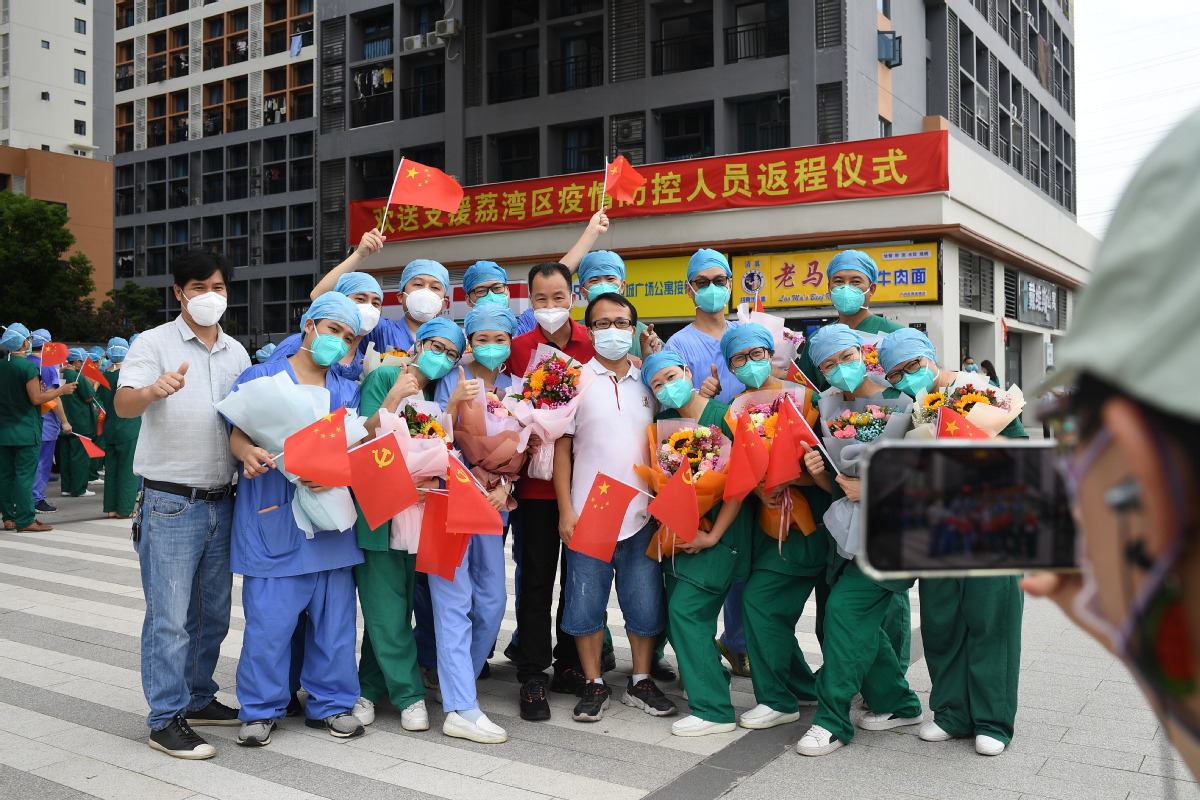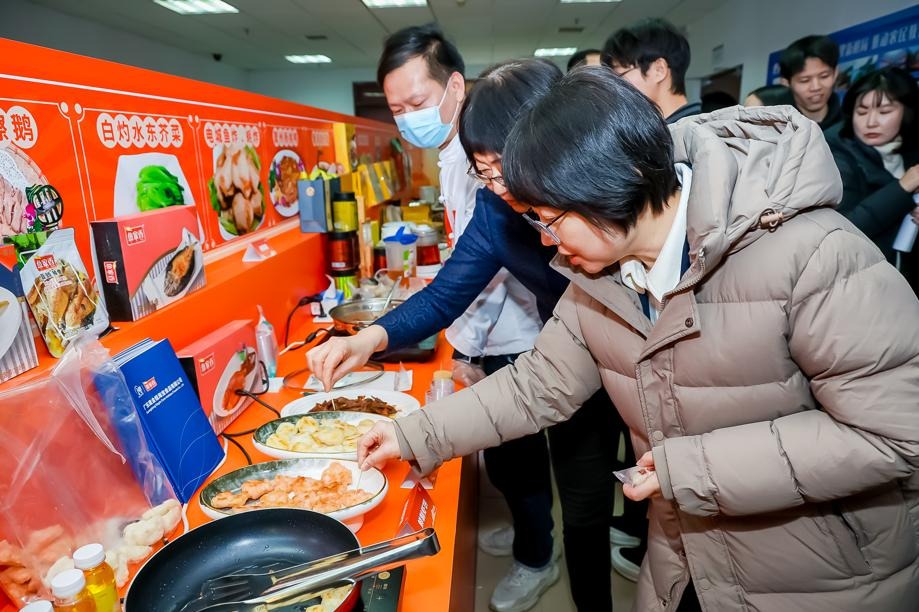New technology fights Guangzhou COVID-19 outbreak


New technologies such as big data and artificial intelligence, as well as high-tech facilities, have played a significant role in the fight against the COVID-19 outbreak in Guangzhou, Guangdong province, officials said on Monday.
"Local scientific research organizations, third-party testing companies, smart robots and autonomous driving and flying platforms have made all-out efforts in the fight against the outbreak since May," said Gao Yuyue, deputy secretary-general of Guangzhou's city government.
The city has no more high- or medium-risk areas after reporting no new locally transmitted COVID-19 cases in the nine days to Monday, Gao told a regular news briefing.
Small and medium-sized science and technology companies in Guangzhou have quickly developed a variety of novel coronavirus detection products, helping greatly enhance the city's screening capability, Gao said.
For example, Guangzhou King-Med Diagnostics Group can test 520,000 nucleic acid samples a day. The city will finish a new round of citywide nucleic acid testing by Wednesday.
Guangzhou can produce 7.3 million nucleic acid testing reagents, 91 million face masks and 100,000 protective suits a day, according to the city government.
Gao said intelligent driving and autonomous air mobility facilities had helped realize no-contact distribution in affected areas.
More than 20 autonomous driving vehicles, along with 30 mini logistics vehicles, have been put into use since June 4, helping send 265 metric tons of goods and materials into closed-off areas, Gao said.
"Advanced urban air mobility technologies have been put into operation efficiently in the fight against the novel coronavirus outbreak," said Huang Wenqian, intelligence marketing director at autonomous aerial vehicle company EHang Holdings.
Four varieties of autonomous aerial vehicles from the Nasdaq-listed company, headquartered in Guangzhou, have flown above closed-off areas in the Fangcun area of the city's Liwan district since June 4, handling logistics, emergency transportation and patrolling, Huang said.
"The unmanned flights are more like an air transport channel built on both sides of the Pearl River, which runs through the city's downtown areas, helping send necessities and medical materials via no-contact distribution," Huang said.
Guangzhou has introduced new measures to control and prevent the spread of COVID-19, including utilizing big data to identify those who have been to medium-risk areas and become close contacts of confirmed cases, said Liang Wenqian, deputy director of the city government's data administration.
A total of 153 locally transmitted COVID-19 cases have been reported in Guangzhou since May, including 146 confirmed cases and seven asymptomatic carriers. No new locally transmitted COVID-19 cases have been reported since June 19, according to the city's health commission.
As of Sunday, 88 COVID-19 patients had been discharged from hospital and those in critical condition had been all cleared, Chen Bin, the commission's deputy director, said.





































